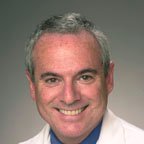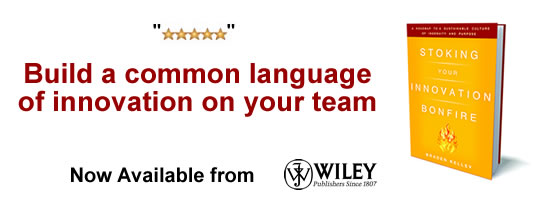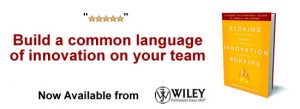Business People Are Lousy Doctors

So doctors are lousy business people, huh?
Well, imagine if your doctor prescribed something based only on your chief complaint. They did not take a history. They did no physical exam and they did no lab tests or imaging if it were necessary . Yet, business people, particularly digipreneurs, do it all the time.
If you think about it, entrepreneurs are continual experimentalists and, particularly when it comes to trying your hand at biomedical and health innovation, maybe all those non-medical technologists, digipreneurs and investors can learn a few things from doctors.
Here are 10 things health wannapreneurs might learn from doctors:
- Learn how to build clinical judgment. Learning from mistakes is called experience. Learning from experience is called clinical judgment. It’s the same with entrepreneurship. Very few entrepreneurs have not had their share of mistakes of failed startups. The successful ones learn from those mistakes and have judgment about pursuing the next opportunity.
- Entrepreneurship is about research and experimenting, something doctors do well. Doctors do this every day, day in and day out, with their patients.
- Doctors are used to dealing with uncertainty. Doctors make decisions with incomplete information. Sometimes they have to do things based on their gut. In fact, they do so more than they would like to admit. Only about 25-35% of medical decisions are based on scientific evidence.
- Doctors have a bias to action. While obtaining a patient’s history, doing physical exams and tests are a routine part of care, they are all a means toward an end of solving or relieving the patient’s problem. Doctors are trained, admittedly sometimes unsuccessfully, to not do things that won’t make a difference in how they treat patients.
- Doctors are excellent at pattern recognition. Doctors basically do three things: They make decisions, communicate/educate, and do procedures. Decision-making, whether in dermatology, pathology or multiple other specialties, relies on pattern recognition skills.
- Doctors know how to question, observe, connect and associate: core entrepreneurial skills. In The Innovators DNA, Christensen et al. noted the core skills of innovators are: questioning, associating, connecting, experimenting and observing. Doctors have them all.
- Doctors know how to assess risk and make on the spot cost-benefit decisions. Every medical decision is based on the risks versus the benefits.
- Doctors, particularly those in private practice, know how to play many roles.. They have to incorporate new techniques into their practices, they have to have human resource skills,they have to create a profit in the most regulated industry in the US and they have to rapidaly adopt to a continually changing landscape.
- Doctors are on the front lines of market opportunity every day and pursue it.
- Doctors have the courage to know when something won’t work or should be ended. Doctors deal with such circumstance on a routine basis when dealing with patient’s treatment. They understand that when you’ve seen one patient, you’ve seen one patient. Everyone is different. Not every business is the same and the lessons learned from failure are not necessarily translatable to your next business.
Here are 10 reasons why non-sick care entrepreneurs fail at sick care:
- They fail to understand what it takes to cross the chasm generally and, specifically, digital health adoption and penetration. They think that because they were successful in other industries and that sick care is a million years behind the times, ripe for change, that they can make it happen and move on.
- They erroneously think that consumer product strategies can easily be transposed to sickcare products and services and they grossly underestimate the length of the sales cycle and cost of new customer acquisition.
- They don’t understand human subject clinical trials or how to demonstrate clinical effectiveness
- They are confused by FDA mandates and guidance documents regulating mobile medical apps.
- They consider reimbursement or revenue generation as an after thought instead of as part of their initial commercial feasibility assessment and business model canvas assumptions.
- They ignore the intellectual property protection issues
- They stumble over how to deal with doctors as part of their business to business model and think that doctors are lousy business people, know-it-alls and too smart for their own good.
- They don’t satisfy all the sick care stakeholders (patients, payers, providers, partners), instead focusing on just one.
- They are investor and technopreneur driven, instead of end user driven. They don’t understand what makes patients and doctors tick or how to navigate the last mile.Â
- They have a hard time penetrating the White Wall of Sickcare that is resistent to change and has a not-invented-here mindset.
Innovation happens when problem seekers meet problem solvers. Rarely is that the same person doing both. Consider it like two overlapping circles. Doctors tend to be problem solvers. Entrepreneurs tend to be problem seekers. One helps the other.
Entrepreneurship is a facilitating technology that cuts across all disciplines, including the arts, the social sciences and the humanities. All entrepreneurs, regardless of their expertise or industry, have something to learn from others and all can benefit from adopting an entrepreneurial mindset. Some think of entrepreneurship as creating and running companies.Contemporary thinking and pedagogy sees it as a process of creating value. As such, the emphasis has shifted from being a problem solver to a problem seeker, regardless of the domain or discipline or unique ecosystem.
Please. Stop telling doctors they are terrible business people.
It’s the pot calling the kettle black.
Image credit: wigeogis.com
Wait! Before you go…
Choose how you want the latest innovation content delivered to you:
- Daily — RSS Feed — Email — Twitter — Facebook — Linkedin Today
- Weekly — Email Newsletter — Free Magazine — Linkedin Group
 Arlen Meyers, MD, MBA is the President and CEO of the Society of Physician Entrepreneurs at www.sopenet.org
Arlen Meyers, MD, MBA is the President and CEO of the Society of Physician Entrepreneurs at www.sopenet.org
NEVER MISS ANOTHER NEWSLETTER!
LATEST BLOGS
Invention or Innovation? – 300 MPG Car
Engadget has an article on a 300 MPG car that Aptera is now beginning to accept pre-orders for. Apparently, they…
Read MoreWidget Way to Innovation
The online world is changing, are you ready to change with it? The web is all about trying to drive…
Read More



